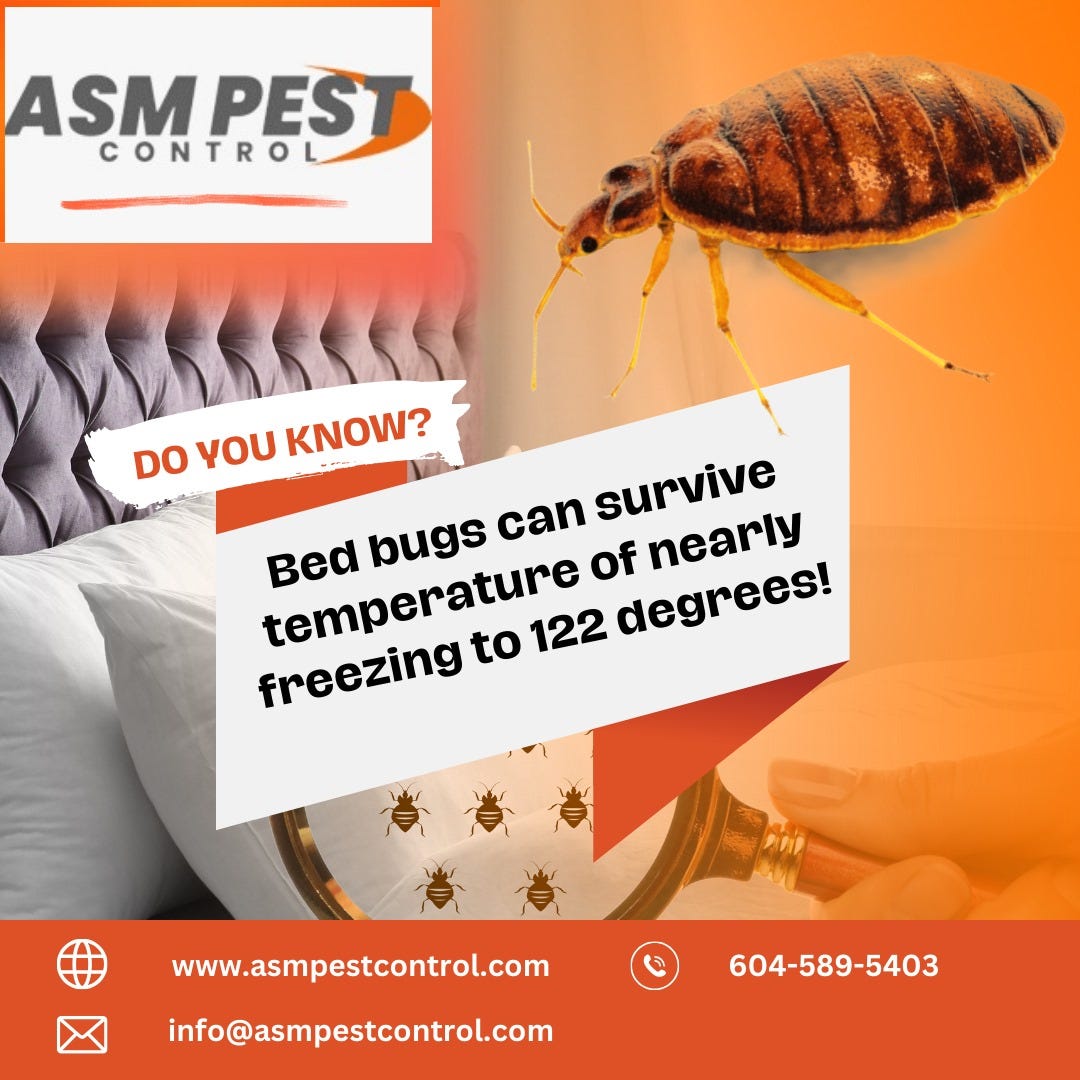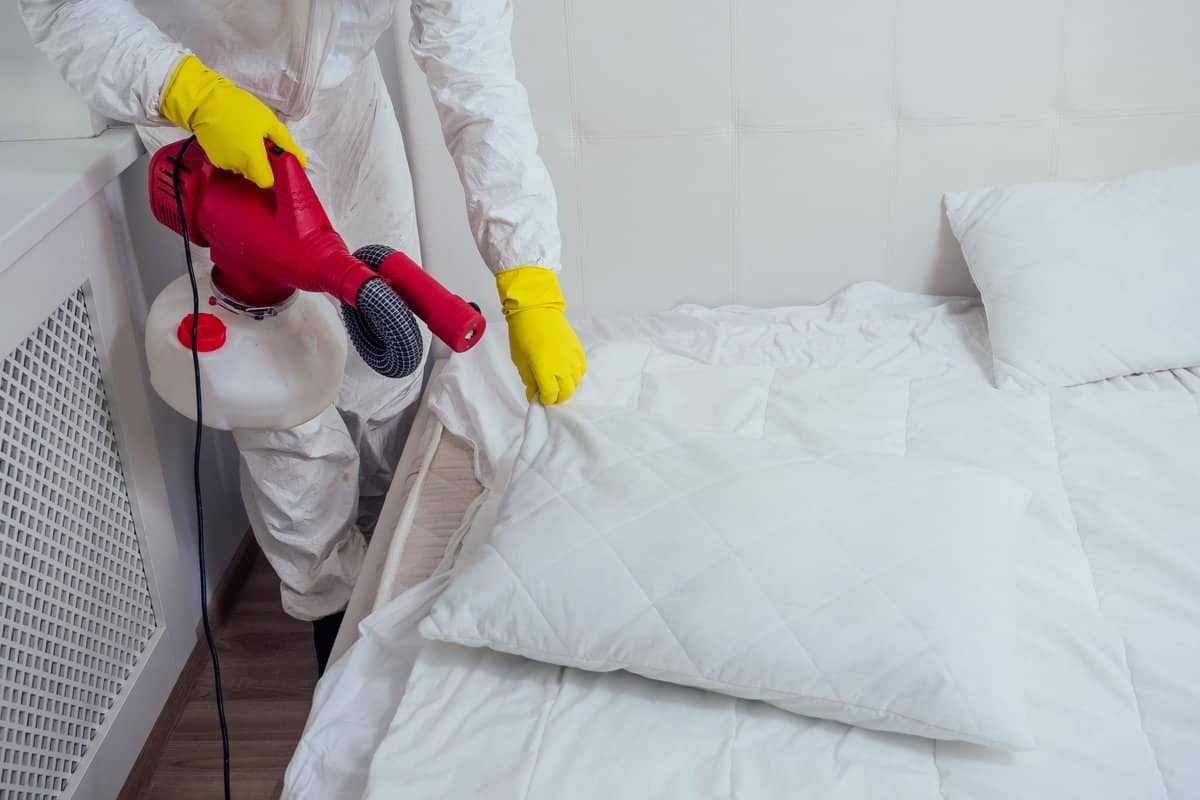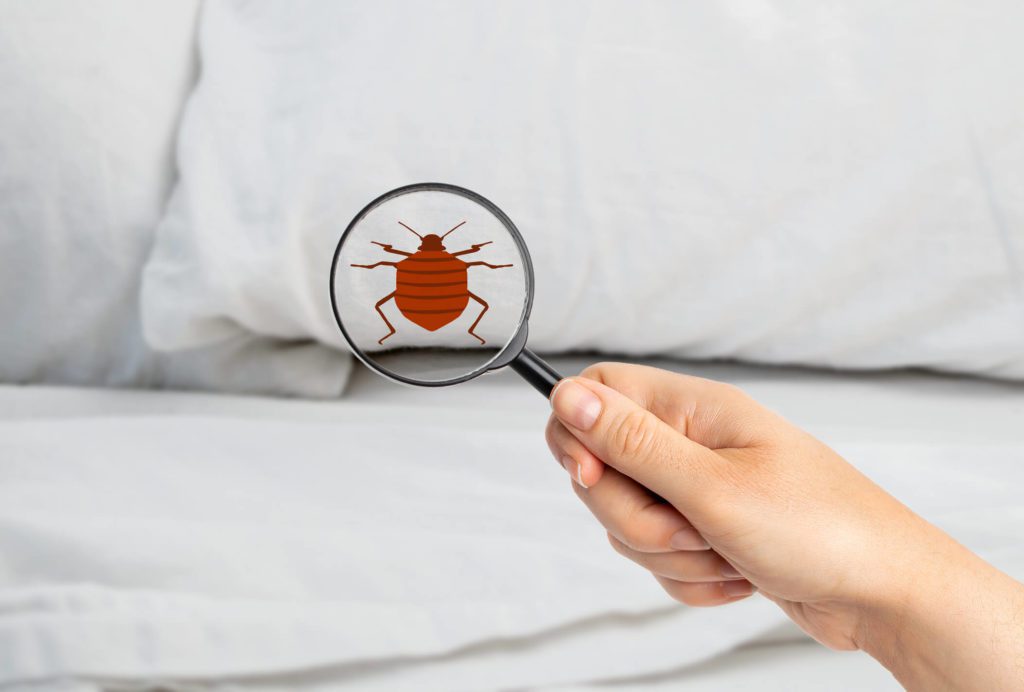Finest Kings Pest Control Cincinnati: Premier Exterminators
Finest Kings Pest Control Cincinnati: Premier Exterminators
Blog Article
Sorts Of Pest Control: Which Approach Is Right for Your Invasion?
When confronted with a bug invasion, the choice of an ideal approach for parasite control is important in effectively managing the scenario. From chemical therapies to organic remedies, there exists an array of strategies that can be employed to attend to various types of parasites. Each approach comes with its very own set of benefits and considerations, making the decision-making procedure a nuanced one. Recognizing the subtleties of each method and evaluating their compatibility with the specific pest invasion available is crucial for accomplishing lasting success in insect management. By checking out the various kinds of pest control approaches available, people can make enlightened decisions customized to their special scenarios, making certain an extra effective and lasting outcome in insect removal.
Chemical Parasite Control
Chemical bug control includes making use of synthetic or naturally derived chemicals to manage and eradicate pest populations efficiently. This technique is commonly used in agriculture, forestry, and residential setups to combat a broad array of parasites, including rats, weeds, and bugs. The usage of chemical pesticides can provide fast and targeted remedies to pest infestations, making it a prominent option for many individuals and companies.
One of the vital advantages of chemical pest control is its capacity to promptly eliminate insects, decreasing the risk of damage to crops, residential or commercial property, and human health and wellness. By utilizing specific chemicals that target certain bugs, this technique can properly control infestations while reducing damage to valuable microorganisms and the environment when applied properly.
Nevertheless, using chemical parasite control likewise elevates issues concerning potential unfavorable results on non-target types, water resources, and human health. It is essential to adhere to safety standards, apply chemicals sensibly, and think about different parasite control methods to lessen these dangers and make sure sustainable pest management practices.
Organic Pest Control
Biological insect control, also understood as biocontrol, makes use of living microorganisms to minimize and manage bug populations naturally. This technique utilizes the power of nature to control bugs without the need for synthetic chemicals. Biocontrol can involve the introduction of all-natural opponents of the bug varieties, such as parasites, microorganisms, or killers, to suppress insect populaces. By utilizing the pest's natural killers or microorganisms, biological pest control provides a lasting and environmentally pleasant option to pest administration.

Mechanical Insect Control
Making use of physical and manual methods to take care of pest populaces, mechanical bug control provides an alternative technique that does not count on making use of living microorganisms or synthetic chemicals. This approach entails using obstacles, traps, or other tools to literally hinder or get rid of bugs. By obstructing insect access points or setting up catches to catch them, mechanical pest control can effectively lower infestations without presenting chemicals right into the environment.
One common instance of mechanical pest control is using mesh screens on doors and windows to avoid bugs from going into buildings. This basic yet reliable technique acts as a physical barrier, maintaining parasites out while enabling correct ventilation. In addition, devices like mousetraps, fly swatters, and ultrasonic repellents fall under the mechanical insect control classification.
While mechanical bug control techniques can be labor-intensive and require regular monitoring and maintenance, they offer a sustainable and ecologically pleasant service for handling bug problems. By combining different pest control uk mechanical methods, homeowner can develop a detailed insect control method that minimizes reliance on chemical pesticides.
Physical Parasite Control

Some usual physical bug control techniques include the usage of obstacles such as screens or internet to stop insect access, traps to catch and eliminate insects, and hand-picking to literally get rid of parasites from plants or frameworks. Furthermore, techniques like warm treatments can be made use of to regulate parasites like bed bugs by elevating the temperature to levels that are dangerous to the pests.
Physical bug control is especially beneficial in integrated parasite monitoring (IPM) techniques, where multiple bug control approaches are integrated for reliable pest management while lessening using chemicals. By making use of physical bug control techniques, people can efficiently attend to pest infestations with marginal ecological impact.
Integrated Parasite Monitoring
When carrying out physical insect control methods as part of parasite monitoring approaches, Integrated Parasite Administration (IPM) becomes a detailed local bug exterminators strategy that leverages various strategies to effectively control pest populaces. IPM concentrates on long-term prevention of bugs via a combination of organic, cultural, physical, and chemical tools customized to details pest issues. By incorporating numerous control strategies, IPM intends to decrease the risks associated with bugs while also reducing reliance on chemical remedies.
One key facet of IPM is the emphasis on tracking and assessing pest populations to identify the most suitable control approaches. This aggressive method enables very early intervention and targeted approaches, bring about extra effective pest monitoring. In addition, IPM promotes eco-friendly methods by focusing on non-chemical control approaches and only using chemicals as a last option.
Verdict

By making use of the insect's all-natural predators or virus, organic parasite control uses a eco friendly and lasting option to pest administration. - Kings Bed bug exterminator Cincinnati
Using physical and hand-operated approaches to take care of parasite populations, mechanical bug control offers an alternative method that does not depend on the use of living organisms or artificial chemicals.An efficient approach to taking care of parasite populations without depending on chemical or organic approaches includes the use of physical pest control strategies.When applying physical parasite control techniques as component of parasite administration methods, Integrated Bug Management (IPM) arises as a thorough method that leverages different techniques to effectively control pest populations. Chemical pest control includes the use of chemicals, biological bug control utilizes natural killers, mechanical parasite control entails physical obstacles, physical insect control consists of trapping or getting rid of insects, and incorporated pest monitoring integrates numerous methods for an all natural strategy to pest control.
Report this page